75 start with D start with D


Dance and the Specific Image includes over one hundred improvisational structures that Nagrin created with his new company, the Workgroup, and has taught in dance classes and workshops all over the United States. Designed primarily for dancers, many can be adapted for actors and even musicians.
In the 1960s, at a time when many modern dancers were working with movement as abstraction, Nagrin turned instead toward movement as metaphor. His passionate belief that dance must speak of people led him to found the Workgroup, a small company of dancers who, in the early 1970s, devoted themselves to the practice and performance of improvisation.
Nagrin invites the reader into the mind of a dancer totally absorbed in his art, one who writes with wisdom and authority about what it means to be an artist.

Dance Improvisations is a book for teachers of dance and acting, choreographers, directors, and dance therapists. Systematically offering a complete range of ways to explore dance, it can be used as a syllabus or as a reference for groups of all ages and all levels of experience.
The first chapter in Dance Improvisations introduces ways for a group to practice working together and for the dancers to gain an effective awareness of each other. These preliminaries are followed by a body of improvisational problems, organized into three main areas: Space, Time, and Movement Invention. Each area is presented as a series of topics. Each topic progresses from individual exploration to more formally structured group improvisations, with emphasis on learning to work as a group toward common structural goals.
This book is the first in its field to go beyond the pursuit of physical inventiveness to nurture the development of structural intuition. Joyce Morgenroth has succeeded in presenting improvisation in a way that is rational and methodical as well as inventive and personal - in the conviction that improvisation at its best is comprised of both form and fancy.

Combining critical analysis with personal history and poetry, Dancing Identity presents a series of interconnected essays composed over a period of fifteen years. Taken as a whole, these meditative reflections on memory and on the ways we perceive and construct our lives represent Sondra Fraleigh's journey toward self-definition as informed by art, ritual, feminism, phenomenology, poetry, autobiography, and-always-dance.
Fraleigh's brilliantly inventive fusions of philosophy and movement clarify often complex philosophical issues and apply them to dance history and aesthetics. She illustrates her discussions with photographs, dance descriptions, and stories from her own past in order to bridge dance with everyday movement. Seeking to recombine the fractured and bifurcated conceptions of the body and of the senses that dominate much Western discourse, she reveals how metaphysical concepts are embodied and presented in dance, both on stage and in therapeutic settings.
Examining the role of movement in personal and political experiences, Fraleigh reflects on her major influences, including Moshe Feldenkrais, Kazuo Ohno, and Twyla Tharp. She draws on such varied sources as philosophers Simone de Beauvoir and Martin Heidegger, the German expressionist dancer Mary Wigman, Japanese Butoh founder Tatsumi Hijikata, Hitler, the Bomb, Miss America, Balanchine, and the goddess figure of ancient cultures. Dancing Identity offers new insights into modern life and its reconfigurations in postmodern dance.

Dancing Into Darkness is Sondra Horton Fraleigh's chronological diary of her deepening understanding of and appreciation for this art form, as she moves from a position of aesthetic response as an audience member to that of assimilation as a student. As a student of Zen and butoh, Fraleigh witnesses her own artistic and personal transformation through essays, poems, interviews, and reflections spanning twelve years of study, much of it in Japan. Numerous performance photographs and original calligraphy by Fraleigh's Zen teacher Shodo Akane illuminate her words.
The pieces of Dancing Into Darkness cross boundaries, just as butoh anticipates a growing global amalgamation. "Butoh is not an aesthetic movement grafted onto Western dance, " Fraleigh concludes, "and Western dance may be more Eastern than we have been able to see. "
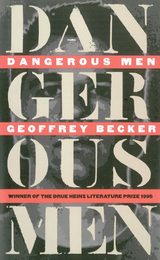
In these tightly drafted stories, Becker creates a wide variety of distinct voices, peculiar characters, and odd stettings, with tantalizing emphasis on lonliness, loss, and the ever-present struggle to find one’s place in the world. “It was wrong to think that our presence would linger on, though it was to this notion that I realized I’d been grasping all along,” the music-student narrator of “Dangerous Men” says after an evening involving drugs, a fight, and a car accident, “the idea that in some way we were etching ourselves onto the air, leaving shadows that would remain forever.”
Many of the pieces incorporate music into the storyline. Music is a gathering point in his characters’ misfit lives. In “Magister Ludi,” a seventeen-year-old girl meets up with an older local guitarist whom her younger brother has invited over to their house when their parents are gone, and plays him for her own ends: “She makes Riggy drive right through the center of town, hoping that someone will see them - one of her friends, or one of her parents’ friends even, it doesn’t matter. She just likes the idea of being spotted in this beat-up car alongside someone so disreputable.”
In “Erin and Malcom,” a bass player with an injured hand who still lives with his estranged wife, a singer, and her pet ferret, finds out how out of tune his life really is: “Something has gone wrong - he could see it in the way she looked at him over her morning bowl of cereal, and the way she didn’t as she peeled herself out of her Lycra pants and leopard shirts at night.”
Yet , even when the music seems quiet, there are tales of choice and happenstance. “El Diablo de La Cienega,” set in New Mexico, is about a boy who accepts the challenge of a mysterious figure to a game of basketball, for very high stakes indeed. Charles Baxter - one of America’s great story writers - calls the story “a small masterpiece. It has formal perfection, like a folktale. I thought it was wonderful.”
With leaps from the funny to the sad and the revelatory, these amazing stories explore dreams and longing with remarkable insight and imagination. These are stories you will not forget.
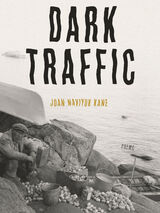
Dark Traffic creates landmarks through language, by which its speakers begin to describe traumas in order to survive and move through them. With fine detail and observation, these poems work in some way like poetic weirs: readers of Kane’s work will see the artic and subarctic, but also, more broadly, America, and the exigencies of motherhood, indigenous experience, feminism, and climate crises alongside the near-necropastoral of misogyny, violence, and systemic failures. These contexts catch the voice of the poems’ speakers, and we perceive the currents they create.


Born in Latvia, Grace lived in seven countries and spoke five languages before the age of eleven. As a child, she witnessed Hitler’s march into Prague, attended a Soviet school during World War II, and sailed the seas with her father. In a multi-faceted career, she worked as a professional photographer, television producer, and book editor and critic. Eventually, like her father, she became a Russian specialist, but of a very different kind. She accompanied Ted Kennedy and his family to Russia, escorted Joan Baez to Moscow to meet with dissident Andrei Sakharov, and hosted Josef Stalin’s daughter on the family farm after Svetlana defected to the United States. While running her own consulting company in Russia, she witnessed the breakup of the Soviet Union, and later became director of a women’s economic empowerment project in a newly independent Ukraine.
Daughter of the Cold War is a tale of all these adventures and so much more. This compelling and evocative memoir allows readers to follow Grace's amazing path through life – a whirlwind journey of survival, risk, and self-discovery through a kaleidoscope of many countries, historic events, and fascinating people.



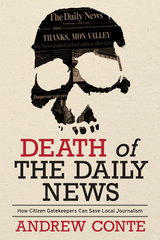
The City of McKeesport in southwestern Pennsylvania once had a population of more than fifty thousand people and a newspaper that dated back to the nineteenth century. Technology has caused massive disruption to American journalism, throwing thousands of reporters out of work, closing newsrooms, and leaving vast areas with few traditional news sources—including McKeesport. With the loss of their local paper in 2015, residents now struggle to make sense of what goes on in their community and to separate facts from gossip—often driven by social media. The changes taking place in this one Pennsylvania community are being repeated across the United States as hundreds of local newspapers close, creating news deserts and leaving citizens with little access to reliable local journalism. The obituary for local news, however, does not have to read all bad: Even in the bleakest places, citizens are discovering what happens in their communities and becoming gatekeepers to information for the people around them. In McKeesport, citizens are attempting to make sense of the news on their own, for better and worse. This experiment not only offers clues about what happens after a local newspaper dies, but also provides guidance to the way forward.

Albert Sbragia considers American urban government as an investor whether for building infrastructure or supporting economic development. Over time, such investment has become disconnected from the normal political and administrative processes of local policymaking through the use of special public spending authorities like water and sewer commissions and port, turnpike, and public power authorities.
Sbragia explores how this entrepreneurial activity developed and how federal and state policies facilitated or limited it. She also analyzes the implications of cities creating innovative, special-purpose quasi-governments to circumvent and dilute state control over city finances, diluting their own authority in the process.

Despite a pronounced shift away from Eurocentrism in Spanish and Hispanic studies departments in US universities, many implicit and explicit vestiges of coloniality remain firmly in place. While certain national and linguistic expressions are privileged, others are silenced with predictable racial and gendered results. Decolonizing American Spanish challenges not only the hegemony of Spain and its colonial pedagogies, but also the characterization of Spanish as a foreign language in the United States. By foregrounding Latin American cultures and local varieties of Spanish and reconceptualizing the foreign as domestic, Jeffrey Herlihy-Mera works to create new conceptual maps, revise inherited ones, and institutionalize marginalized and silenced voices and their stories. Considering the University of Puerto Rico as a point of context, this book brings attention to how translingual solidarity and education, a commitment to social transformation, and the engagement of student voices in their own languages can reinvent colonized education.
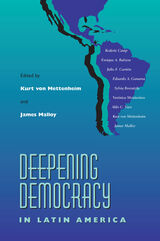


Runner-up, Society of Midland Authors 2002 Poetry Prize
Gabriel Gudding’s poems not only defend against the pretense and vanity of war, violence, and religion, but also against the vanity of poetry itself. These poems sometimes nestle in the lowest regions of the body, and depict invective, donnybrooks, chase scenes, and the abuse of animals, as well as the indignities and bumblings of the besotted, the lustful, the annoyed, and the stupid.
In short, Gudding seeks to reclaim the lowbrow. Dangerous, edgy, and dark, this is an innovative writer unafraid to attack the unremitting high seriousness of so much poetry, laughing with his readers as he twists the elegiac lyric "I" into a pompous little clown.
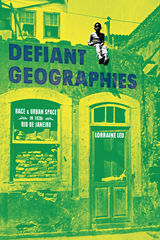
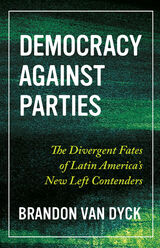
Around the world, established parties are weakening, and new parties are failing to take root. In many cases, outsiders have risen and filled the void, posing a threat to democracy. Why do most new parties fail? Under what conditions do they survive and become long-term electoral fixtures? Brandon Van Dyck investigates these questions in the context of the contemporary Latin American left. He argues that stable parties are not an outgrowth of democracy. On the contrary, contemporary democracy impedes successful party building. To construct a durable party, elites must invest time and labor, and they must share power with activists. Because today’s elites have access to party substitutes like mass media, they can win votes without making such sacrifices in time, labor, and autonomy. Only under conditions of soft authoritarianism do office-seeking elites have a strong electoral incentive to invest in party building. Van Dyck illustrates this argument through a comparative analysis of four new left parties in Latin America: two that collapsed and two that survived.

Belarus is widely regarded as the most authoritarian state in the region, while Ukraine is witnessing a slow, if often troubled, democratic consolidation. Each state presents a different set of challenges to outside agencies. As Pospieszna shows, Poland is uniquely positioned to offer effective counsel on the transition to democracy. With similarities of language and culture, and a shared history, combined with strong civic activism and success within the European Union, Poland’s regional policies have successfully combined its need for security and a motivation to spread democracy as primary concerns. Pospieszna details the founding, internal workings, goals, and methods of Poland’s aid programs. She then compares the relative degrees of success of each in Belarus and Ukraine and documents the work yet to be done.
As her theoretical basis, Pospieszna analyzes current thinking on the methods and effectiveness of NGOs in transitions to democracy, particularly U.S.- and European-led aid efforts. She then views the applicability of these methods to the case of Poland and its aid recipients. Overwhelmingly, Pospieszna finds the greatest success in developmental programs targeting civil society—workers, intellectuals, teachers, students, and other NGO actors.
Through extensive interviews with government administrators and NGO workers in Poland and the United States, coupled with archival research, Pospieszna assembles an original perspective on the mitigation of the ‘postcommunist divide’. Her work will serve as a model for students and scholars of states in transition, and it provides an overview of both successful and unsuccessful strategies employed by NGOs in democracy assistance.

Following World War II, the American Occupation created Western style democratic institutions in Japan and sought to develop a society and culture that would support a democratic political system. Now, after four decades, the successes and failures of Japanese democracy can be assessed. How equal are Japan’s citizens? To what extent are their views represented in the legislature? How does Japan handle dissent and protest? How stable is its democracy?
In closely related and readable essays, thirteen leading experts consider three main components of democracy in Japan - political, social, and economic. The editors’ introduction provides historical background, making this book accessible and valuable for students, the general reader interested in Japan, as well as the specialist.
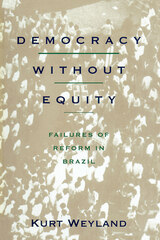

After 21 years of military rule, Brazil returned to democracy in 1985. Over the past decade and a half, Brazilians in the Nova República (New Republic) have struggled with a range of diverse challenges that have tested the durability and quality of the young democracy. How well have they succeeded? To what extent can we say that Brazilian democracy has consolidated? What actors, institutions, and processes have emerged as most salient over the past 15 years? Although Brazil is Latin America's largest country, the world's third largest democracy, and a country with a population and GNP larger than Yeltsin's Russia, more than a decade has passed since the last collaborative effort to examine regime change in Brazil, and no work in English has yet provided a comprehensive appraisal of Brazilian democracy in the period since 1985.
Democratic Brazil analyzes Brazilian democracy in a comprehensive, systematic fashion, covering the full period of the New Republic from Presidents Sarney to Cardoso. Democratic Brazil brings together twelve top scholars, the “next generation of Brazilianists,” with wide-ranging specialties including institutional analysis, state autonomy, federalism and decentralization, economic management and business-state relations, the military, the Catholic Church and the new religious pluralism, social movements, the left, regional integration, demographic change, and human rights and the rule of law. Each chapter focuses on a crucial process or actor in the New Republic, with emphasis on its relationship to democratic consolidation. The volume also contains a comprehensive bibliography on Brazilian politics and society since 1985. Prominent Brazilian historian Thomas Skidmore has contributed a foreword to the volume.
Democratic Brazil speaks to a wide audience, including Brazilianists, Latin Americanists generally, students of comparative democratization, as well as specialists within the various thematic subfields represented by the contributors. Written in a clear, accessible style, the book is ideally suited for use in upper-level undergraduate courses and graduate seminars on Latin American politics and development.
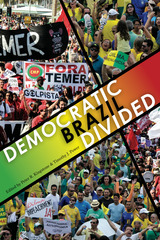
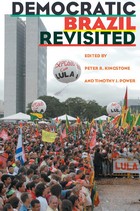
The 2002 election of Lula da Silva and his Worker's Party promised a radical shift toward progressive reform, transparency, and accountability, opposing the earlier centrist and market-oriented policies of the Cardoso government. But despite the popular support reflected in his 2006 reelection, many observers claim that Lula and his party have fallen short of their platform promises. They have moved to the center in their policies, done little to change the elitist political culture of the past, and have engaged in “politics as usual” in executive-legislative relations, leading to allegations of corruption.
Under these conditions, democracy in Brazil remains an enigma. Progress in some areas is offset by stagnation and regression in others: while the country has seen renewed economic growth and significant progress in areas of health care and education, the gap between rich and poor remains vast. Rampant crime, racial inequality, and a pandemic lack of personal security taint the vision of progress. These dilemmas make Brazil a particularly striking case for those interested in Latin America and democratization in general.
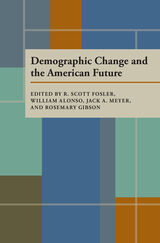





Phoenix is known as the “Valley of the Sun,” while Tucson is referred to as “The Old Pueblo.” These nicknames epitomize the difference in the public’s perception of each city. Phoenix continues to sprawl as one of America’s largest and fastest-growing cities. Tucson has witnessed a slower rate of growth, and has only one quarter of Phoenix’s population. This was not always the case. Prior to 1920, Tucson had a larger population. How did two cities, with such close physical proximity and similar natural environments develop so differently?
Desert Cities examines the environmental circumstances that led to the starkly divergent growth of these two cities. Michael Logan traces this significant imbalance to two main factors: water resources and cultural differences. Both cities began as agricultural communities. Phoenix had the advantage of a larger water supply, the Salt River, which has four and one half times the volume of Tucson’s Santa Cruz River. Because Phoenix had a larger river, it received federal assistance in the early twentieth century for the Salt River project, which provided water storage facilities. Tucson received no federal aid. Moreover, a significant cultural difference existed. Tucson, though it became a U.S. possession in 1853, always had a sizable Hispanic population. Phoenix was settled in the 1870s by Anglo pioneers who brought their visions of landscape development and commerce with them.
By examining the factors of watershed, culture, ethnicity, terrain, political favoritism, economic development, and history, Desert Cities offers a comprehensive evaluation that illuminates the causes of growth disparity in two major southwestern cities and provides a model for the study of bi-city resource competition.

This volume defines resilience as it relates to disaster management at specific stages: mitigation, prevention, preparation, and response and recovery. The book illustrates models by which to evaluate resilience at levels ranging from individuals to NGOs to governmental jurisdictions and examines how resilience can be developed and sustained. A group or nation’s ability to withstand events and emerge from them with their central institutions intact is at the core of resilience. Quality of response, capacity to improvise, coordination, flexibility, and endurance are also determinants. Individual case studies, including Hurricane Katrina in the United States, the London bombings, and French preparedness for the Avian flu, demonstrate effective and ineffective strategies.
The contributors reveal how the complexity and global interconnectivity of modern systems—whether they are governments, mobile populations, power grids, financial systems, or the Internet—have transcended borders and created a new level of exposure that has made them especially vulnerable to extreme events. Yet these far-reaching global systems also possess the ability to alert and respond at greater speeds than ever before.
The authors analyze specific characteristics of resilient systems—the qualities they possess and how they become resilient—to determine if there are ways to build a system of resilience from the ground up. As such, Designing Resilience will inform a broad range of students and scholars in areas of public administration, public policy, and the social sciences.
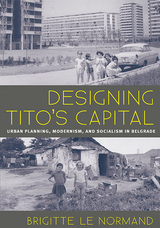
Led first by architect Nikola Dobrovic and later by Miloš Somborski, planners blended the predominant school of European modernism and the socialist principles of efficient construction and space usage to produce a model for housing, green space, and working environments for the masses. A major influence was modernist Le Corbusier and his Athens Charter published in 1943, which called for the total reconstruction of European cities, transforming them into compact and verdant vertical cities unfettered by slumlords, private interests, and traffic congestion. As Yugoslavia transitioned toward self-management and market socialism, the functionalist district of New Belgrade and its modern living were lauded as the model city of socialist man.
The glow of the utopian ideal would fade by the 1960s, when market socialism had raised expectations for living standards and the government was eager for inhabitants to finance their own housing. By 1972, a new master plan emerged under Aleksandar Ðordevic, fashioned with the assistance of American experts. Espousing current theories about systems and rational process planning and using cutting edge computer technology, the new plan left behind the dream for a functionalist Belgrade and instead focused on managing growth trends. While the public resisted aspects of the new planning approach that seemed contrary to socialist values, it embraced the idea of a decentralized city connected by mass transit.
Through extensive archival research and personal interviews with participants in the planning process, Le Normand’s comprehensive study documents the evolution of ‘New Belgrade’ and its adoption and ultimate rejection of modernist principles, while also situating it within larger continental and global contexts of politics, economics, and urban planning.
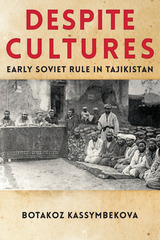
In a region marked by ethnic, linguistic, and cultural diversity, the Soviet plan was to recognize these differences while subsuming them within the conglomerate of official Soviet culture. As Kassymbekova reveals, the local ruling system was built upon an intricate network of individuals, whose stated loyalty to communism was monitored through a chain of command that stretched from Moscow through Tashkent to Dushanbe/Stalinabad. The system was tenuously based on individual leaders who struggled to decipher the language of Bolshevism and maintain power through violent repression.

Winner, 2020 LASA Best Book Award in the Humanities (Southern Cone Section)
Winner, 2020 CLAH Bolton-Johnson Prize
Honorable Mention, 2020 Alfred B. Thomas Book Award
Under dictatorship in Argentina, sex and sexuality were regulated to the point where sex education, explicit images, and even suggestive material were prohibited. With the return to democracy in 1983, Argentines experienced new freedoms, including sexual freedoms. The explosion of the availability and ubiquity of sexual material became known as the destape, and it uncovered sexuality in provocative ways. This was a mass-media phenomenon, but it went beyond this. It was, in effect, a deeper process of change in sexual ideologies and practices. By exploring the boom of sex therapy and sexology; the fight for the implementation of sex education in schools; the expansion of family planning services and of organizations dedicated to sexual health care; and the centrality of discussions on sexuality in feminist and gay organizations, Milanesio shows that the destape was a profound transformation of the way Argentines talked, understood, and experienced sexuality, a change in manners, morals, and personal freedoms.

Selected by C. Michael Curtis
The characters in Brett Ellen Block’s debut collection of short stories may know their destinations, but they don’t always rush to them. From a runaway on an ice cream truck to a down-and-out retiree in a porn shop, they struggle to face both their pasts and their futures.
In a series of tightly focused and deftly drawn vignettes, Block explores the detours, potholes, and speed bumps along the road of life. These are stories about people at loose ends in their lives, coming to the realization that they can’t always sit back and enjoy the ride. Whether they’re committing petty larceny, moping their way through the winding streets and canals of Venice, or seeking to escape North Carolina’s Outer Banks, Block’s characters are learning to get behind the wheel and take control.
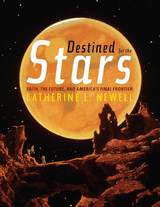
Where did humanity get the idea that outer space is a frontier waiting to be explored? Destined for the Stars unravels the popularization of the science of space exploration in America between 1944 and 1955, arguing that the success of the US space program was due not to technological or economic superiority, but was sustained by a culture that had long believed it was called by God to settle new frontiers and prepare for the inevitable end of time and God’s final judgment. Religious forces, Newell finds, were in no small way responsible for the crescendo of support for and interest in space exploration in the early 1950s, well before Project Mercury—the United States’ first human spaceflight program—began in 1959.
In this remarkable history, Newell explores the connection between the art of Chesley Bonestell—the father of modern space art whose paintings drew inspiration from depictions of the American West—and the popularity of that art in Cold War America; Bonestell’s working partnership with science writer and rocket expert Willy Ley; and Ley and Bonestell’s relationship with Wernher von Braun, father of both the V-2 missile and the Saturn V rocket, whose millennial conviction that God wanted humankind to leave Earth and explore other planets animated his life’s work. Together, they inspired a technological and scientific faith that awoke a deep-seated belief in a sense of divine destiny to reach the heavens. The origins of their quest, Newell concludes, had less to do with the Cold War strife commonly associated with the space race and everything to do with the religious culture that contributed to the invention of space as the final frontier.

Every city has an environmental story, perhaps none so dramatic as Pittsburgh's. Founded in a river valley blessed with enormous resources-three strong waterways, abundant forests, rich seams of coal-the city experienced a century of exploitation and industrialization that degraded and obscured the natural environment to a horrific degree. Pittsburgh came to be known as “the Smoky City,” or, as James Parton famously declared in 1866, “hell with the lid taken off.”
Then came the storied Renaissance in the years following World War II, when the city's public and private elites, abetted by technological advances, came together to improve the air and renew the built environment. Equally dramatic was the sweeping deindustrialization of Pittsburgh in the 1980s, when the collapse of the steel industry brought down the smokestacks, leaving vast tracks of brownfields and riverfront. Today Pittsburgh faces unprecedented opportunities to reverse the environmental degradation of its history.
In Devastation and Renewal, scholars of the urban environment post questions that both complicate and enrich this story. Working from deep archival research, they ask not only what happened to Pittsburgh's environment, but why. What forces-economic, political, and cultural-were at work? In exploring the disturbing history of pollution in Pittsburgh, they consider not only the sooty skies, but also the poisoned rivers and creeks, the mined hills, and scarred land. Who profited and who paid for such “progress”? How did the environment Pittsburghers live in come to be, and how it can be managed for the future?
In a provocative concluding essay, Samuel P. Hays explores Pittsburgh's “environmental culture,” the attitudes and institutions that interpret a city's story and work to create change. Comparing Pittsburgh to other cities and regions, he exposes exaggerations of Pittsburgh's environmental achievement and challenges the community to make real progress for the future.
A landmark contribution to the emerging field of urban environmental history, Devastation and Renewal will be important to all students of cities, of cultures, and of the natural world.

The development of the Dutch welfare state in the Netherlands started later than in other Western European countries, but once it started, it grew at a spectacular rate. The development was so rapid that it catapulted the Dutch from being welfare laggards to being welfare leaders. Cox charts the course of this growth, from the nineteenth century to the present, placing the Dutch case within the larger theoretical discussion of welfare states.
In so doing, Cox challenges the widely held assumption that welfare programs always represent the policies of the social democratic left. He demonstrates that it was not the left but the more centrist religious parties that built the Dutch welfare state in the 1960s. Even more curious is the fact that these same political forces had resisted the expansion of welfare programs throughout the first half of the twentieth century.
In many ways, the Netherlands is a crucial test case for assumptions about the welfare state. Its system is one of the largest in the world, rivaling Sweden's as one that devotes the greatest share of public spending to social welfare. How does it compare to other countries? Do present theories of welfare state development fit the Dutch case? What can we learn from the experience of a small state?
Cox makes a signal contribution in clarifying the historical record concerning a little-studied country and in advancing theoretical debate.
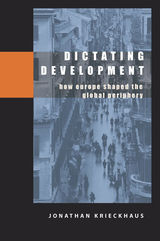



The work presupposes knowledge of basic Russian grammar and a vocabulary of about 2,000 words. The native speaker of Russian will be able to use this book to develop greater sophistication in English. The advanced student, the teacher, and the specialist who reads Russian will find this an invaluable guide to the subtleties of Russian usage.
The work presupposes knowledge of basic Russian grammar and a vocabulary of about 2,000 words. The native speaker of Russian will be able to use this book to develop greater sophistication in English. The advanced student, the teacher, and the specialist who reads Russian will find this an invaluable guide to the subtleties of Russian usage.

During the mid-twentieth century, Latin American countries witnessed unprecedented struggles over the terms of national sovereignty, civic participation, and social justice. Nowhere was this more visible than in Peronist Argentina (1946–1955), where Juan and Eva Perón led the region’s largest populist movement in pursuit of new political hopes and material desires. Eduardo Elena considers this transformative moment from a fresh perspective by exploring the intersection of populism and mass consumption. He argues that Peronist actors redefined national citizenship around expansive promises of a vida digna (dignified life), which encompassed not only the satisfaction of basic wants, but also the integration of working Argentines into a modern consumer society. From the mid-1940s onward, the state moved to boost purchasing power and impose discipline on the marketplace, all while broadcasting images of a contented populace.
Drawing on documents such as the correspondence between Peronist sympathizers and authorities, Elena sheds light on the contest over the dignified life. He shows how the consumer aspirations of citizens overlapped with Peronist paradigms of state-led development, but not without generating great friction among allies and opposition from diverse sectors of society. Consumer practices encouraged intense public scrutiny of class and gender comportment, and everyday objects became freighted with new cultural meaning. By providing important insights on why Peronism struck such a powerful chord, Dignifying Argentina situates Latin America within the broader history of citizenship and consumption at mid-century, and provides innovative ways to understand the politics of redistribution in the region today.
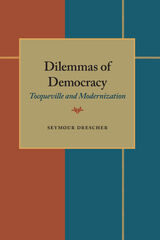
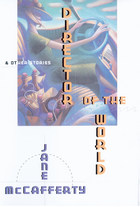
Implicit in these stories is a rootlessness that gives way to yearning and a passion for remembering. In the title story, a disturbed child, whose father has recently abandoned the family, attempts, in language reflecting her shattered sense of the world, to recapture some of their last experiences together.
These characters, and others in the collection, attempt to make sense of their broken lives and shattered thoughts. As John Wideman writes of the stories, there is “a sense of commitment to the struggle of making silent worlds speak, of forcing what is threatening or evil or destructive into some form we can see and conjure with.”
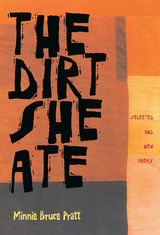

This unusual and provocative collection brings to light a dimension of Soviet history and policy rarely explored.

The Americans with Disabilities Act (ADA) of 1990 was intended to send a clear message to society that discrimination on the basis of disability is unacceptable. As with most civil rights laws, the courts were given primary responsibility for implementing disability rights policy.
Mezey argues that the act has not fulfilled its potential primarily because of the judiciary's "disabling interpretations" in adjudicating ADA claims. In the decade of litigation following the enactment of the ADA, judicial interpretation of the law has largely constricted the parameters of disability rights and excluded large numbers of claimants from the reach of the law. The Supreme Court has not interpreted the act broadly, as was intended by Congress, and this method of decision making was for the most part mirrored by the courts below. The high court's rulings to expand state sovereign immunity and insulate states from liability in damage suits has also caused claimants to become enmeshed in litigation and has encouraged defendants to challenge other laws affecting disability rights. Despite the law's strong civil rights rhetoric, disability rights remain an imperfectly realized goal.


WINNER OF THE 2007 AGNES LYNCH STARRETT POETRY PRIZE
Dismantling the Hills is a testament to working-class, rural American life. In a world of machinists, loggers, mill workers, and hairdressers, the poems collected here bear witness to a landscape, an industry, and a people teetering on the edge of ruin. From tightly constructed narratives to expansive and surreal meditations, the various styles in this book not only reflect the poet's range, but his willingness to delve into his obsessions from countless angles Full of despair yet never self-loathing, full of praise yet never nostalgic, Dismantling the Hills is both ode and elegy. McGriff's vision of blue-collar life is one of complication and contradiction, and the poems he makes are authentic, unwavering, and unapologetically American.
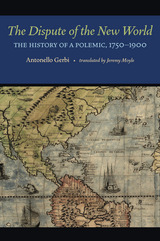
Translated in 1973, The Dispute of the New World is the definitive study of this debate. Antonello Gerbi scrutinizes each contribution to the debate, unravels the complex arguments, and reveals their inner motivations. As the story of the polemic unfolds, moving through many disciplines that include biology, economics, anthropology, theology, geophysics, and poetry, it becomes clear that the subject at issue is nothing less than the totality of the Old World versus the New, and how each viewed the other at a vital turning point in history.

Rice outlines three distinct ways that the rhetoric of publics counteracts development: through injury claims, memory claims, and equivalence claims. In injury claims, rhetors frame themselves as victims in a dispute. Memory claims allow rhetors to anchor themselves to an older, deliberative space, rather than to a newly evolving one. Equivalence claims see the benefits on both sides of an issue, and here rhetors effectively become nonactors.
Rice provides case studies of development disputes that place the reader in the middle of real-life controversies and evidence her theories of claims-based public rhetorics. She finds that these methods comprise the most common (though not exclusive) vernacular surrounding development and shows how each is often counterproductive to its own goals. Rice further demonstrates that these claims create a particular role or public subjectivity grounded in one’s own feelings, which serves to distance publics from each other and the issues at hand.
Rice argues that rhetoricians have a duty to transform current patterns of public development discourse so that all individuals may engage in matters of crisis. She articulates its sustainability as both a goal and future disciplinary challenge of rhetorical studies and offers tools and methodologies toward that end.


Paulino examines the campaign against Haiti as the construct of a fractured urban intellectual minority, bolstered by international politics and U.S. imperialism. This minority included a diverse set of individuals and institutions that employed anti-Haitian rhetoric for their own benefit (i.e., sugar manufacturers and border officials.) Yet, in reality, these same actors had no interest in establishing an impermeable border.
Paulino further demonstrates that Dominican attitudes of admiration and solidarity toward Haitians as well as extensive intermixture around the border region were commonplace. In sum his study argues against the notion that anti-Haitianism was part of a persistent and innate Dominican ethos.

—Robert Hass




Winner of the 2017 California Book Awards, first fiction category
Many of these richly layered stories juxtapose the miracles of modern medicine against the inescapable frustrations of everyday life: awkward first dates, the indignities of air travel, and overwhelming megastore cereal aisles. In “Go Forth,” an aging couple attends a kidney transplant reunion, where donors and recipients collide with unexpected results; in “Hounds,” a woman who runs a facial reconstruction program for veterans nurses her dying dog while recounting the ways she has used sex as both a weapon and a salve; and in “Consider This Case,” a lonely fetal surgeon caring for his aesthete father must reconsider sexuality and the lengths people will go to have children.
Melissa Yancy’s personal experience in the milieus of hospitals, medicine, and family services infuse her narratives with a rare texture and gravity. Keenly observant, offering both sharp humor and humanity, these stories explore the ties that bind—both genetic and otherwise—and the fine line between the mundane and the maudlin. Whether the men or women that populate these pages are contending with illness, death, or parenthood, the real focus is on time and our inability to slow its progression, reminding us to revel in those moments we can control.



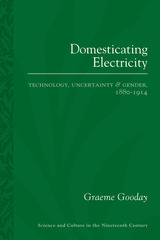





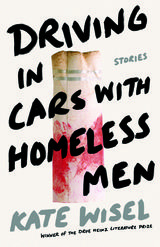
Finalist, 2019 Foreword Indies Award
Driving in Cars with Homeless Men is a love letter to women moving through violence. These linked stories are set in the streets and the bars, the old homes, the tiny apartments, and the landscape of a working-class Boston. Serena, Frankie, Raffa, and Nat collide and break apart like pool balls to come back together in an imagined post-divorce future. Through the gritty, unraveling truths of their lives, they find themselves in the bed of an overdosed lover, through the panting tongue of a rescue dog who is equally as dislanguaged as his owner, in the studio apartment of a compulsive liar, sitting backward but going forward in the galley of an airplane, in relationships that are at once playgrounds and cages. Homeless Men is the collective story of women whose lives careen back into the past, to the places where pain lurks and haunts. With riotous energy and rage, they run towards the future in the hopes of untangling themselves from failure to succeed and fail again.
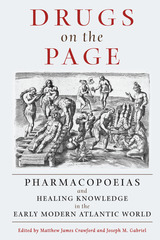
Drugs on the Page explores practices of recording, organizing, and transmitting information about medicinal substances by artisans, colonial officials, indigenous peoples, and others who, unlike European pharmacists and physicians, rarely had a recognized role in the production of official texts and medicines. Drawing on examples across various national and imperial contexts, contributors to this volume offer new and valuable insights into the entangled histories of knowledge resulting from interactions and negotiations between Europeans, Africans, and Native Americans from 1500 to 1850.


This first full-scale treatment of the early prose of Dylan Thomas demonstrates the unity of his total work. Pratt argues that the inward journey of the poetic imagination which is implicit in poetry is often explicit in prose. Her study of Thomas’ early prose alongside his early poetry helps to elucidate all of his writing.
Pratt includes three appendices: a chronology, a summary of the critics’ attitudes toward the problem of influence, and a bibliographical sketch of materials in the Parris surrealist magazine transition, which are paralleled in Thomas’ prose.

Millions of scientific articles are published each year, making it difficult to stay abreast of advances within even the smallest subdisciplines. Traditional approaches to the study of science, such as the history and philosophy of science, involve closely reading a relatively small set of journal articles. And yet many questions benefit from casting a wider net: Is most scientific change gradual or revolutionary? What are the key sources of scientific novelty? Over the past several decades, a massive effort to digitize the academic literature and equip computers with algorithms that can distantly read and analyze a digital database has taken us one step closer to answering these questions. The Dynamics of Science brings together a diverse array of contributors to examine the largely unexplored computational frontiers of history and philosophy of science. Together, they reveal how tools and data from automated textual analysis, or machine “reading,” combined with methods and models from game theory and cultural evolutionary theory, can begin to answer fundamental questions about the nature and history of science.
READERS
Browse our collection.
PUBLISHERS
See BiblioVault's publisher services.
STUDENT SERVICES
Files for college accessibility offices.
UChicago Accessibility Resources
home | accessibility | search | about | contact us
BiblioVault ® 2001 - 2024
The University of Chicago Press









